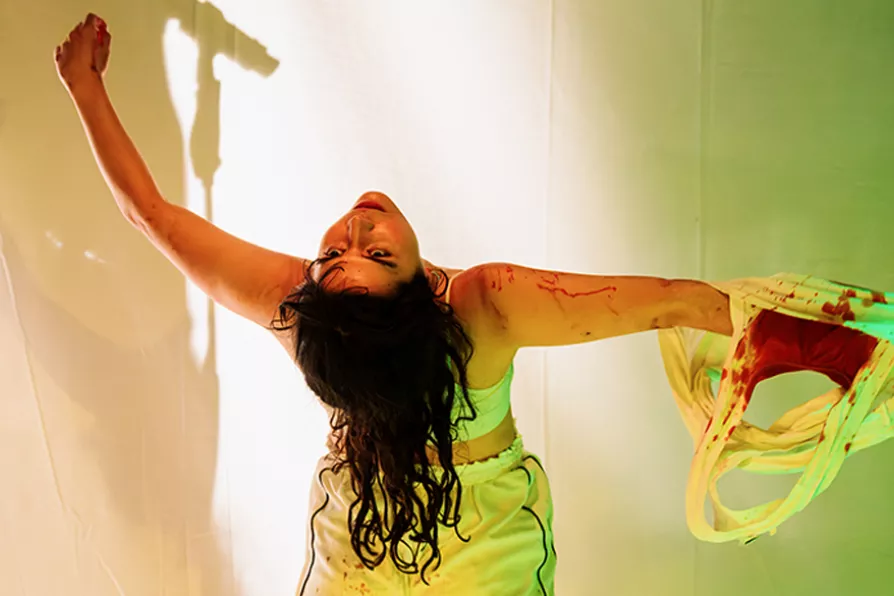
 Gunter
Gunter
Gunter
Royal Court Theatre, London
MESSY by design, Gunter is also, unfortunately, messy by nature – a play so concerned with its own theatricality that it has no atmospheric heart.
Based on a dark, real-life tale of 17th-century English witchcraft, it should be full of fear and loathing, yet Gunter’s co-writers Lydia Higman, Julia Grogan and Rachel Lemon have, in their breathless pursuit of quirkiness, managed to strip it of any resonant core.
On a bright, bare, clinically lit stage that gradually becomes splattered with mud and blood, four members of the Dirty Hare company – Higman and Grogan, with the addition of Hannah Jarrett-Scott and Norah Lopez Holden – play out the sad story of a supposedly bewitched young village girl, Anne Gunter, while dressed in Slazenger sports tops, sometimes also wearing sunglasses and cowboy hats and largely using modern-day language.

















